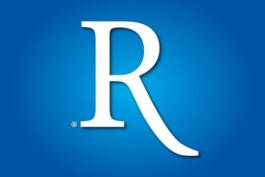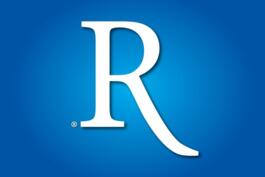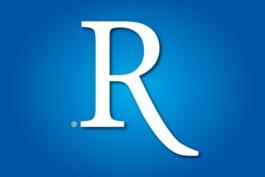A Country Where People Are Afraid to Tell Pollsters What They Think
A Commentary By Michael Barone
"I like a good contrarian argument as much as the next guy," tweets mild-mannered RealClearPolitics senior elections analyst Sean Trende, "but there's really no getting around the fact that the 2020 polling was a pile of steaming garbage."
"The national polls were even worse than they were four years ago," writes New York Times polling guru Nate Cohn. "(W)hatever steps pollsters took to improve after 2016 were canceled out by a new set of problems."
Trende and Cohn have earned credibility as two of the few political analysts who spotted, before Donald Trump's surprise victory, that white non-college graduates were underrepresented in media and exit polls and their potential for voting more Republican was overlooked. This year, pollsters adjusted their samples to include accurate proportions of that demographic, but the responses didn't match the results.
The result: Polls significantly overstated Joe Biden's popular vote margin nationally and consistently showed President Donald Trump and Republican candidates running worse than they ended up doing in target states. The errors were largest in the states most frequently polled.
Why the error? Left-wing ace analyst David Shor argues that Democrats, locked down in their home offices by COVID-19, were more willing to respond to polls, just as they were more likely than in the past to donate money to Democrats and tweet their loathing of the Republican president. There's probably something to that. The Pew Research Center finds that fewer than 1 out of 10 people contacted will respond to its polls, and if one party's fans do so more often, the results will be skewed.
But that also means some voter categories are less likely to be polled. Who are they? Republican pollster Patrick Ruffini's chart comparing preelection polling and the Associated Press VoteCast exit polls identifies white college graduates, women as well as men, as voting much more Republican than indicated in preelection polling.
National Journal's Josh Kraushaar showed how this produced unexpected results in House races: Public and partisan polls showed Democrats gaining seats, but Republicans have actually gained 6 to 13 seats. As Kraushaar recounts, Democrats failed to capture the high-education districts they targeted and lost several such districts they had captured in 2018.
Kraushaar cited two Republican strategists' interviews of suburban voters over six months in which respondents complained about "the excesses of so-called 'cancel culture,' pointing to a stifling environment where employees worry they can be fired or punished for heterodox political views expressed at the workplace." Such voters may not be willing to voice those views to an interviewer who may have their name or address, but they vote against such political correctness at the ballot box.
Rigorous support for this view comes from political scientists Eric Kaufmann, a London-based Canadian of Jewish, Chinese and Latino ancestry whose 2019 book "Whiteshift" puts today's ethnic changes in historic perspective. He notes that ethnic and racial categories change over time and that, as people rise economically and intermarry, grievances and racial identity fade.
"Republican supporters with degrees tend to work in graduate-dominated environments, where organisations and peers are more likely to enforce norms of political correctness," Kaufmann writes in the British online magazine Unherd. "As a result, it is highly-educated Republican supporters who are most shy about revealing their beliefs at work." He cites polling evidence that 45% of Republican college grads versus only 23% of Democratic grads "said they feared that their careers could be at risk if their views became known." This is a case of political speech, in daily life and even in polling interviews, being suppressed out of fear.
Just as it is out of date to lament that big-money Republicans are buying elections, now that Democrats routinely outspend their opponents by a vast margin, so it is out of date to suppose that the greatest threats to free expression come in conservatives trying to stamp out obscenity and silence threats of violence.
The greatest threat to free speech today comes from the left: from college and university campuses with speech codes; from the social media monopolies where recent graduates shut down and stamp out information that, while accurate, may be (as a Biden press aide put it) "misleading"; from the corporate human resources departments that discipline and fire employees whose choice of words make anyone else "uncomfortable."
When I was in the polling business, from 1974 to 1981, I came to think that one measure of a free society is that you could conduct polls there that turned out to be accurate. This year's "steaming garbage" polls suggest that our society is significantly less free than we like to think. Pollsters will keep trying to improve their techniques. But if large numbers of Americans are afraid to speak freely, pollsters won't entirely succeed.
Michael Barone is a senior political analyst for the Washington Examiner, resident fellow at the American Enterprise Institute and longtime co-author of The Almanac of American Politics.
COPYRIGHT 2020 CREATORS.COM
See Other Political Commentary.
See Other Commentaries by Michael Barone.
Views expressed in this column are those of the author, not those of Rasmussen Reports. Comments about this content should be directed to the author or syndicate.
Rasmussen Reports is a media company specializing in the collection, publication and distribution of public opinion information.
We conduct public opinion polls on a variety of topics to inform our audience on events in the news and other topics of interest. To ensure editorial control and independence, we pay for the polls ourselves and generate revenue through the sale of subscriptions, sponsorships, and advertising. Nightly polling on politics, business and lifestyle topics provides the content to update the Rasmussen Reports web site many times each day. If it's in the news, it's in our polls. Additionally, the data drives a daily update newsletter and various media outlets across the country.
Some information, including the Rasmussen Reports daily Presidential Tracking Poll and commentaries are available for free to the general public. Subscriptions are available for $4.95 a month or 34.95 a year that provide subscribers with exclusive access to more than 20 stories per week on upcoming elections, consumer confidence, and issues that affect us all. For those who are really into the numbers, Platinum Members can review demographic crosstabs and a full history of our data.
To learn more about our methodology, click here.



